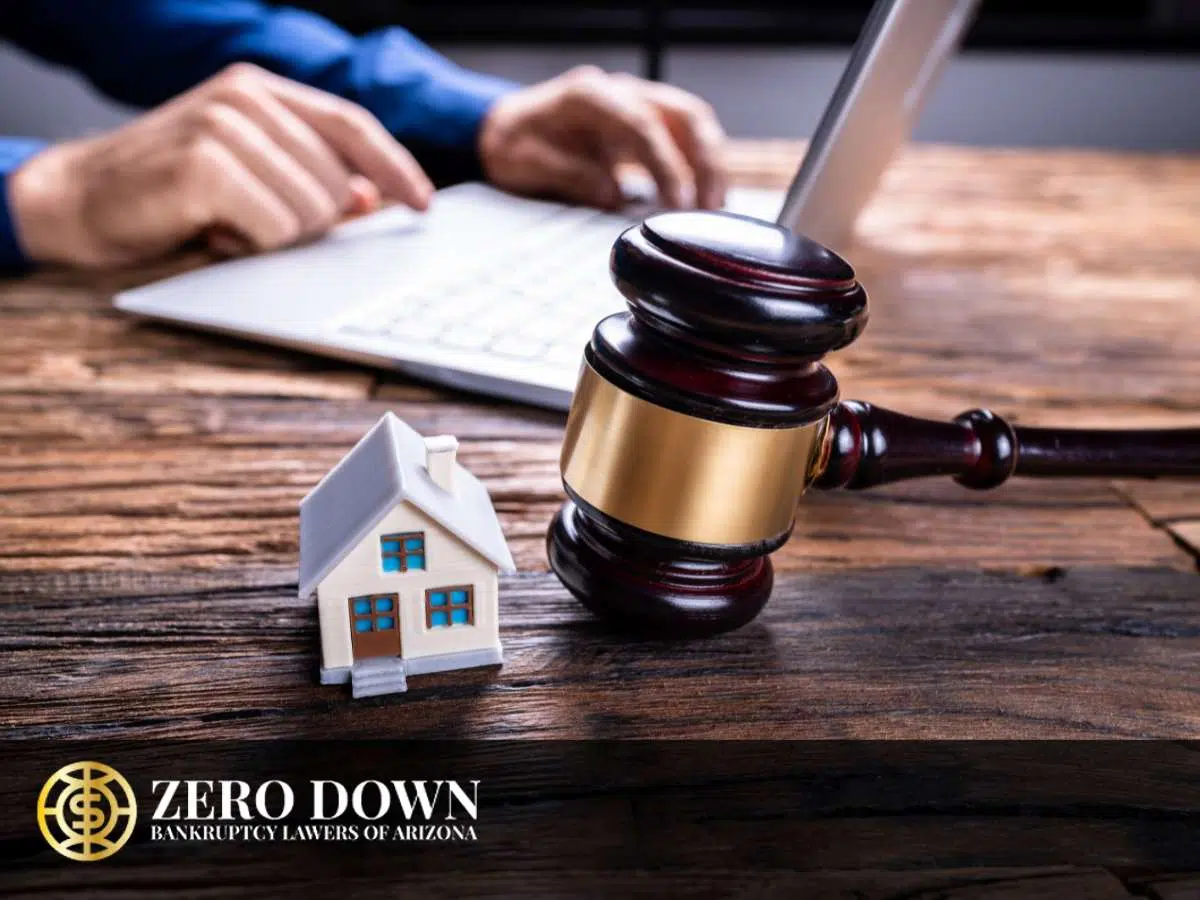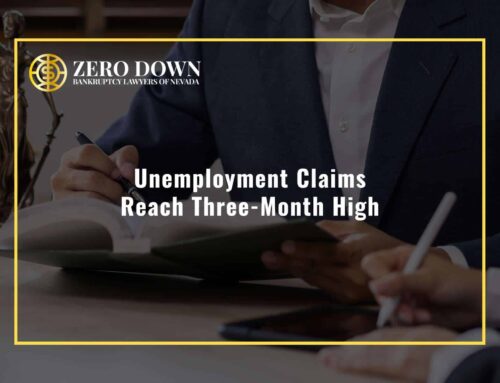AZ Bankruptcy Lawyers Take a Closer Look At How Bankruptcy Affects Your Home
There are many options that are available if you plan to file for bankruptcy, the best path is not always the clearest path to identify. Please contact one of our experienced Arizona debt relief attorneys to make sure that you are protected.
When debts grow to be too much, bankruptcy is there as a safeguard. Bankruptcy can discharge several thousand dollars of debt in a way that also maintains fairness for creditors. Most individuals, also referred to as consumers when it comes to bankruptcy, qualify for one or both of Chapter 7 bankruptcy and Chapter 13 bankruptcy. They are both powerful tools to help you overcome debt and move forward with a more positive financial situation. But a huge concern for many people is whether they will be able to keep their most valuable assets if they file bankruptcy. If you own your own home, it’s probably the most valuable asset you have. So if you declare bankruptcy in Arizona, will you get to keep your home? Read on to learn more, and call 480-833-8000 if you have additional questions.
What Is The Difference Between Chapter 7 & Chapter 13 Bankruptcy?
How your home is affected by your bankruptcy will have a lot to do with the chapter you file. As mentioned above, most people in Arizona will be choosing between Chapter 7 and Chapter 13. Chapter 7 bankruptcy discharges unsecured bankruptcy, and usually lasts about three to six months from start to finish. This will include debts like credit cards, medical bills, repossession deficiencies, personal loans, and other unpaid bills, but won’t include secured debts or priority debts. Chapter 13 reorganizes debts into a payment plan that you pay off in three or five years. Secured and priority debts can be paid off in the plan, and some unsecured debts may be discharged at the plan’s end. Chapter 7 bankruptcy is only available to those whose income falls under certain state limits, while Chapter 13 bankruptcy is only available to those who have sufficient income to pay off a minimum balance of their debt in their payment plan.
Is There a Homestead Exemption In Arizona? How Much Is It? Can I Use This?
Someone who qualifies for Chapter 7 may still end up choosing Chapter 13 bankruptcy because a valued possession can’t be protected by state bankruptcy exemptions. Each state has its own bankruptcy exemptions, which are standards for how much of certain types of categories are protected when a debtor declares bankruptcy in that state. Arizona, unlike some states, doesn’t allow debtors the option of using federal bankruptcy exemptions instead. Arizona also doesn’t offer the same wild card exemption that some states offer, which can be used on any asset the debtor picks. That means that for your house, you only have one option available to you: Arizona’s homestead exemption.
The homestead bankruptcy exemption in Arizona is $150,000. That means that up to $150,000 equity in your home is protected, rather than your home only being protected if its market value is below $150,000. So let’s say your house is worth $300,000. That doesn’t automatically mean that your bankruptcy trustee would take it away to pay your creditors in a Chapter 7. Your mortgage could have a balance of $200,000, bringing your equity to $100,000. Therefore, your home would still be protected by Arizona’s homestead exemption. But if your home is worth $300,000 and your mortgage balance is $50,000, it would be non-exempt, and the trustee might sell your house at auction to pay your creditors. Keep in mind that you need to continue making your regular mortgage payments during a Chapter 7 bankruptcy.
How Do I Keep My Home & Still File For Bankruptcy?
Maybe part of the reason you’re seeking to file bankruptcy is because you’re behind on your mortgage payments. If so, your home lender is probably threatening to begin the process of foreclosing your home. In these conditions, filing bankruptcy in Arizona might be able to help.
When you file bankruptcy, a protection known as the automatic stay becomes effective. The automatic stay stops your creditors, including your home lender, from taking several types of actions against you. Some of these include wage garnishments, bank levies, vehicle repossessions, and utility shutoffs. And if you’re behind on mortgage payments, the most important of these to you might be home foreclosures.
Keeping Your Home With An Arizona Chapter 7 Bankruptcy
You will typically have the lifespan of your bankruptcy to pay off your mortgage arrears so that your lender can’t foreclose. This is three to six months in a Chapter 7 bankruptcy, three or five years in a Chapter 13 bankruptcy. So if you are only a little bit behind and qualify for Chapter 7, you might be able to get current on your mortgage payments before your case is discharged. You will, however, run the risk of your home lender petitioning the court for a Motion for Relief from the Automatic Stay so that they can foreclose your home despite your bankruptcy.
Maybe you don’t qualify for Chapter 7 bankruptcy, or maybe your home wouldn’t be exempt. These would be circumstances that could make Chapter 13 your only option to save your home with bankruptcy. Another reason to use Chapter 13 is if you are far behind on your payments to the point that it would be impossible for you to catch up during a Chapter 7 bankruptcy.
How To Save Your Home From Foreclosure With Chapter 13 Bankruptcy
Chapter 13 bankruptcy gives you a unique opportunity to catch up on your unpaid mortgage balance by spreading it out over the course of your three or five year payment plan. Depending on your jurisdiction, your regular mortgage payments may also be included in your payment plan. Therefore, at the end of your Chapter 13 bankruptcy, you will be current on your payments, and have paid off more, if not all, of your mortgage. Your home lender will have no reason to proceed with a home foreclosure after a successfully discharged Chapter 13 bankruptcy.
There is another massive benefit to filing Chapter 13 bankruptcy if you are underwater in your home. If you owe more on your home than what it’s worth, and you have a secondary mortgage on your home, Chapter 13 bankruptcy allows you to discharge any secondary mortgages on your home. Depending on the status of your home loans, this could be a huge advantage that saves you tens of thousands of dollars, and that Chapter 7 bankruptcy would not be able to do.
I Have Judgments, Are They Ties To My Home? If So, What Can I Do?
A judgment is an official order from the court saying that you owe your creditor a certain sum of money. It gives your creditor the option to pursue a variety of more aggressive debt collection methods. In some instances, your creditor may use that judgment to place a lien on your home. A lien is a security interest in an asset that essentially turns it into a secured asset. You must pay off the debt or work something out with your creditor if you ever want the lien removed, which is necessary to sell or transfer the asset.
Secured debts, including liens, won’t be discharged by a Chapter 7 bankruptcy. That means filing a Chapter 7 bankruptcy won’t get rid of a lien on your home. Chapter 13 bankruptcy is probably your better bet when it comes to bankruptcy in these circumstances. Liens will be included in the second category of debts paid off in a Chapter 13 payment plan.
Protect Your Home With Our Dedicated Arizona Bankruptcy Team
With the housing market the way it currently is in Arizona, you probably don’t want to lose your home in a bankruptcy filing. Moving into an unpredictable rental market could make your family’s financial situation even worse than before. Our Arizona bankruptcy lawyers will help you protect your home while enjoying all the benefits that bankruptcy has to offer. Enjoy comprehensive bankruptcy representation with affordable rates and payment plan options starting at zero dollars down. For more information, use our online form or call 602-609-7000 to schedule your free case evaluation.
Arizona Offices
Phoenix Location:
343 W Roosevelt Street, Suite #100
Phoenix, AZ 85003
Email: [email protected]
Phone: 602-609-7000
Mesa Location:
1731 West Baseline Rd., Suite 101
Mesa, AZ 85202
Email: [email protected]
Glendale Location:
20325 N 51st Avenue, Suite #134
Glendale, AZ 85308
Email: [email protected]
Tucson Location:
2 East Congress, Suite #900
Tucson, AZ 85701
Email: [email protected]










